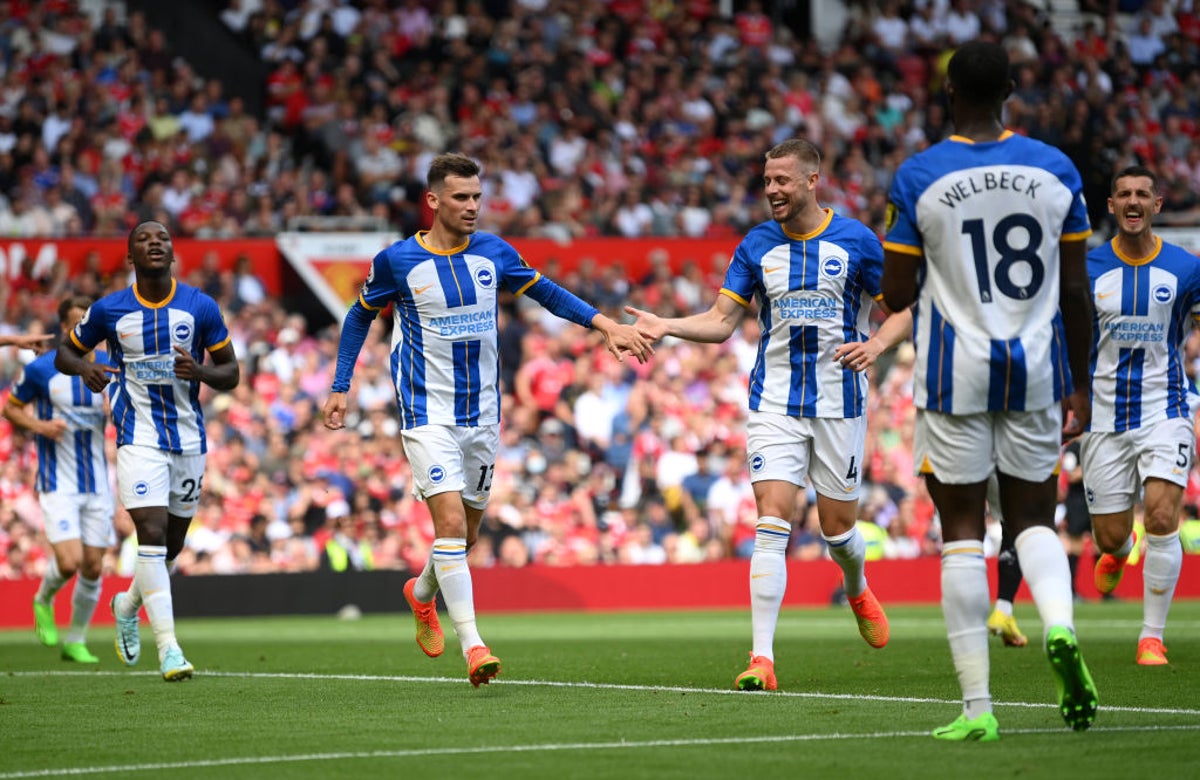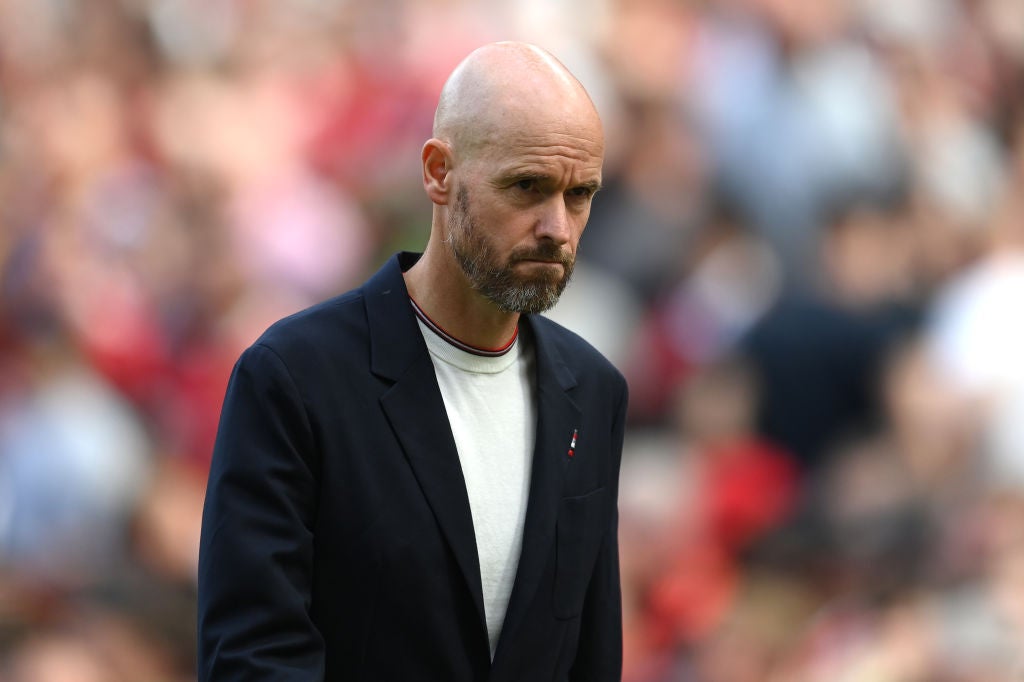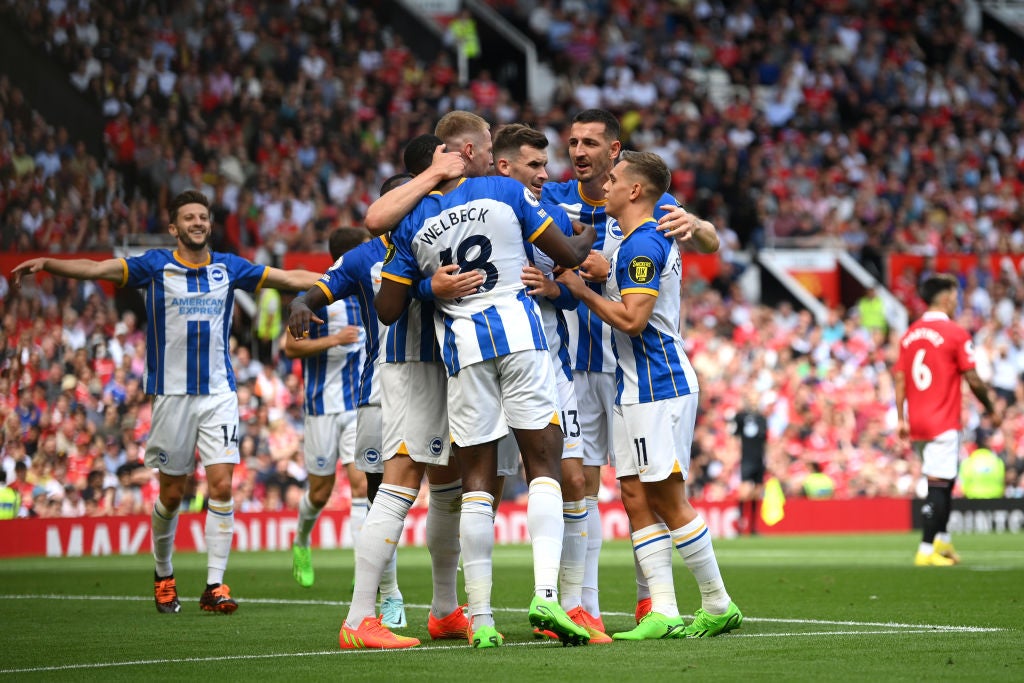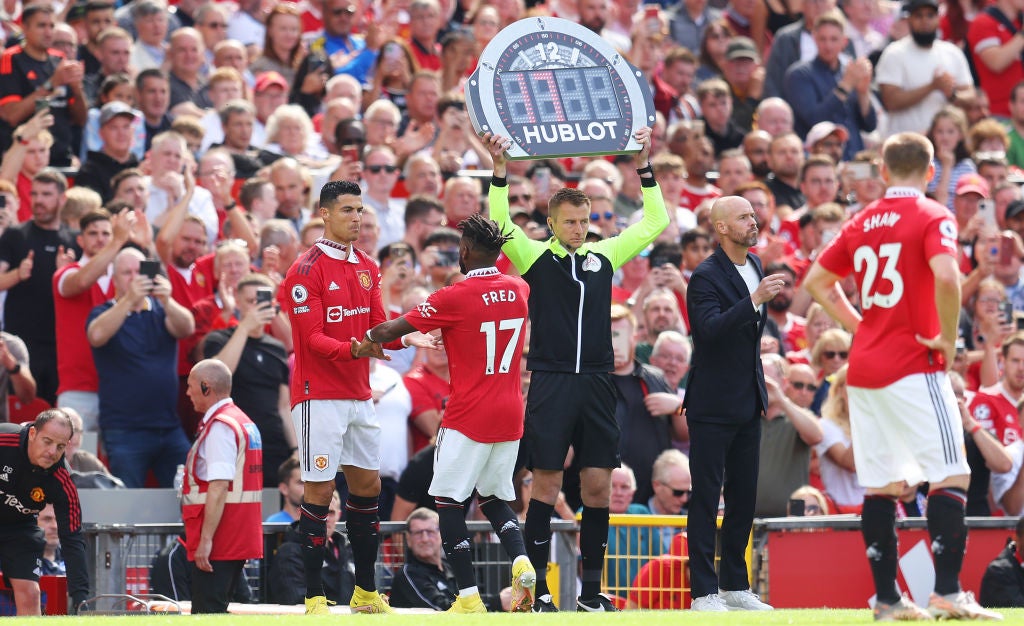
Manchester United’s new era begins much like the last ended. Erik ten Hag’s first competitive game in charge will be recorded as a defeat to Brighton and Hove Albion and will be remembered as even more deflating than the 4-0 reverse at the Amex in the penultimate game of last season: not just because this time it came at Old Trafford but because it punctures any sense of early optimism built by this latest cultural reset.
United’s aspirations of a top-four finish and a swift return to the Champions League under their new manager were made to look remote by Pascal Gross’s first-half double, which earned Brighton’s first-ever win at this ground. It was deserved. Bar a spell of pressure leading up to Alexis Mac Allister’s own goal, United offered precious little evidence of having made progress over the summer.
Like the last Dutchman to take the reins during the post-Sir Alex Ferguson era, Ten Hag begins with a 2-1 home defeat. And just like Louis van Gaal, he will do things his way, according to his philosophy. Here, that involved naming wantaway Cristiano Ronaldo on the substitutes bench after his lack of minutes in pre-season, despite a dearth of options up front. For all the issues he may cause, United looked no better without him in an experimental starting line-up.

Christian Eriksen debuted in the false nine role but was ineffective. Lisandro Martinez, his fellow new arrival, did not disgrace himself, nor did he markedly improve a defence that was at sixes and sevens on both of Gross’s goals. United gave the impression of a team that needs a lot more time on the training ground, adapting to their manager’s ideas. Patience is needed but there are rarely huge reserves of it at Old Trafford, who booed the players off at full time.
This new beginning had an all too familiar backdrop, not just in the debate over Ronaldo’s non-selection. A protest against the Glazer ownership started at Salford’s Media City and ended in front of Sir Matt Busby’s statue before kick-off, leading to the temporary closure of the megastore. And for once, one of the subjects of their ire was in attendance. Avram Glazer presumably did not go out and witness the demonstration firsthand but he did watch a dismal first half from the directors’ box.
United showed early signs of what Ten Hag has been working on in training, with Scott McTominay taking up more advanced positions than usual and teeing up Bruno Fernandes to blaze a half chance over after eight minutes. The tone for the afternoon had been set after just 15 seconds, though, when Leandro Trossard chased down a Diogo Dalot clearance and fired into the side netting.
And so essentially from kick-off, the ease with which Brighton – not a side known for fast, direct attacking play – were able to exploit the space in behind United’s defence was a cause for concern. It was not the only one. There were teething problems at almost every turn, whether that was Eriksen’s unfamiliarity as a false nine or David de Gea’s discomfort in possession, which played a small part in Brighton’s opener on the half-hour mark.
After deliberating whether to play out from the back and eventually choosing otherwise, the United goalkeeper’s long punt upfield was picked up by Joel Veltman. A tangle with McTominay, which the Brighton defender won easily, set away an attack, with Trossard then finding Danny Welbeck in the inside-left channel. From the byline, his cut-back evaded De Gea and United’s retreating backline to find Gross, who tapped in at the far post while unmarked.

A bad start would only get worse. Brighton’s brilliant second followed five minutes before the interval. The move started from their own left-hand corner flag, where the excellent Moises Caicedo shrugged off the challenge of Eriksen, and went all the way out to United’s right-hand corner, where Mac Allister’s tame shot was palmed away by the even tamer hand of De Gea. Gross fed off the scraps, converting into an unguarded net at the far post once more.
It was an excellent team goal and evidence of the fact, if it were needed, that Potter’s side are much better coached than the rabble in front of them. That is not Ten Hag’s fault of, course, but it was still his problem to solve. The United manager went down the tunnel at halftime with purpose for his first significant team talk of his tenure. And though there were no changes at the break, within eight minutes of the restart, he had turned to Ronaldo.
Ten Hag’s immediate predecessor in the job, Ralf Rangnick, eventually concluded that for all the tactical difficulties Ronaldo causes, United could not play without him.

That may be the conclusion his successor draws after watching his side improve with the five-time Ballon d’Or winner on the pitch. On the hour mark, a low Ronaldo cross put Marcus Rashford one-on-one with Robert Sanchez, only for his attempt to be smothered. The offside flag subsequently went up, apparently incorrectly. Had Rashford scored, it may well have stood.
The deficit was eventually halved by a Brighton player. United’s ineptness at attacking set-pieces became a running theme last season but a corner delivered their first goal of this campaign. Dalot did not know much about the ball hitting him in the back. As it trickled towards the line, Harry Maguire’s presence was enough to force it in off the unfortunate Mac Allister. It was scrappy in the extreme but United had made the most of their gaining momentum. They were now one goal away from avoiding a chastening first defeat of the Ten Hag era. It did not arrive.







